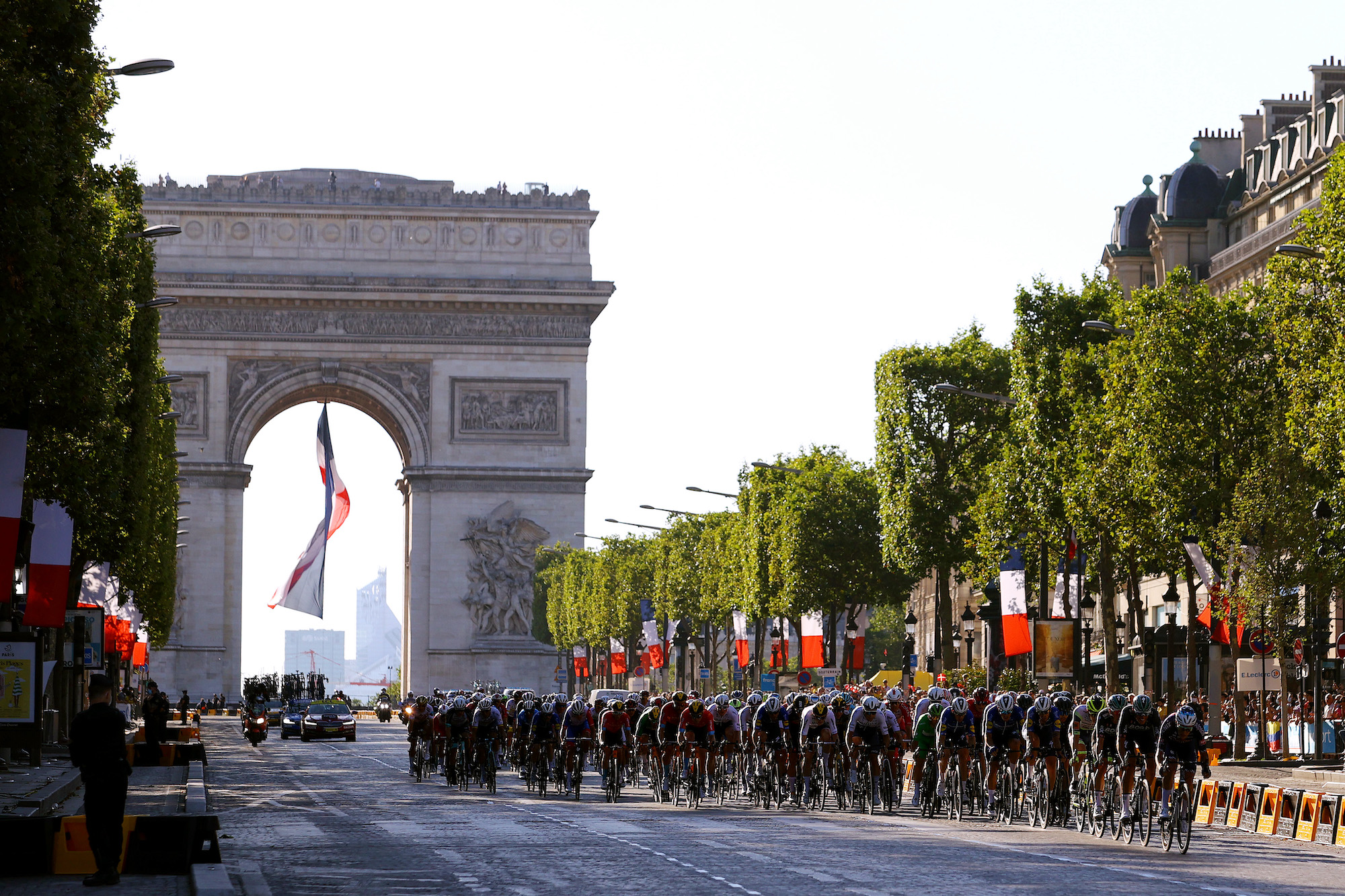No Champs-Élysées for the Tour de France in 2024? Report says race will finish in Nice, not Paris
The 111th Tour is rumoured to be starting in Florence, beginning in Italy for the first ever time


The latest race content, interviews, features, reviews and expert buying guides, direct to your inbox!
You are now subscribed
Your newsletter sign-up was successful
The Champs-Elysées is one of those things that seems intrinsic to the Tour de France, like a mayor of a village, in a sash, standing proudly outside a Tabac while the race passes, or the peloton riding through interminable sunflower fields on a warm July day.
It has been used for the past 47 years as the finishing point of Le Tour, the Elysian Fields that come at the end of three hard weeks of riding, as the riders who have made it to the end are allowed to be in the middle of one of the most glamorous boulevards in the world.
As the protestors of 1968 said "la beauté est dans la rue", or "the beauty is in the street".
The 2024 Tour de France might completely rip up the rulebook, however, if reports are to be believed. Not only might it not loop around the Arc de Triomphe on the final Sunday, it might not be in the Île-de-France at all.
In the 119 years of its existence, the Tour has never finished outside of Paris, nor has it ever started in Italy, but this might all change in two years.
On Wednesday morning, the Italian sports newspaper La Gazzetta Dello Sport reported that the 111th edition will begin in Florence, with four stages at least in part in Italy. These will be celebrating former Italian yellow jersey winners Gino Bartali, Riccardo Nencini, Marco Pantani, Ottavio Bottecchia and Fausto Coppi.
It also reported that there would be no Paris finalé, with the race finishing in Nice on stage 21 instead.
The latest race content, interviews, features, reviews and expert buying guides, direct to your inbox!
The reason for this is the Paris Olympics, which start on July 26. Due to this massive sporting clash, the Tour has already shifted back to a Saturday June 29 – Sunday July 21 slot.
The race's organisers, ASO, feel it impossible to have the finish in Paris days before the Opening Ceremony of the next Olympics, hence the move.
La grande boucle will head across the border to Italy because of €10 million of public and private money which has been raised between the regions of Tuscany, Emilia-Romagna and Piedmont. It is believed stage one will begin in Florence, with the Tuscan capital suitably picturesque for the great race.
2024 will be 100 years since the first Italian victor of the Tour, Bottecchia, and so the dates line up perfectly.
After stage one leaves Florence, it will reportedly go through the Piazza del Comune in Faenza before arriving along the Romagna Riviera. This day will celebrate Bartali by passing through his birthplace in Ponte a Ema.
Stage two will start in Cesenatico, where Pantani is from, and finishes in Bologna. Gazzetta said this could feature the Barberino di Mugello to remember 1960 winner Gastone Nencini.
The third stage will head from Modena to Piacenza through the Apennines, another hilly day.
The final stage at least partly in Italy will be stage four, which will see the race set off from Pinerolo and crosses into French territory in time for the finish line. Pinerolo is important in Tour history as the site of Coppi’s legendary breakaway in the 1949 edition.
The change of final day venue from Paris to Nice could change the nature of the race as well. By convention, the last stage is more of a procession than a race, with the yellow jersey wearer safe from attack. If the last day sees the peloton riding the hills around Nice, much like the end of Paris-Nice, that might well change.

Adam is Cycling Weekly’s news editor – his greatest love is road racing but as long as he is cycling, he's happy. Before joining CW in 2021 he spent two years writing for Procycling. He's usually out and about on the roads of Bristol and its surrounds.
Before cycling took over his professional life, he covered ecclesiastical matters at the world’s largest Anglican newspaper and politics at Business Insider. Don't ask how that is related to riding bikes.